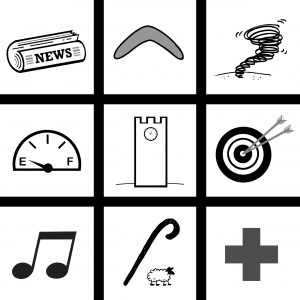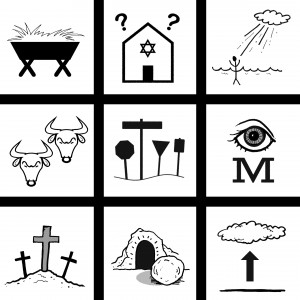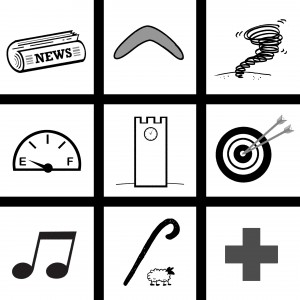 The message of the Bible offers the only satisfying answer to the problem of evil and suffering. All the other philosophies and religions of the world can be boiled down to four phrases: Not Really, Not Ever, Not Again, and Not Yet. When you ask the Buddha for a solution to suffering, he would tell you that suffering is “not really” happening. Buddha said that this world is a dream and an illusion. Atheism, which critiques the problem of pain as a reason to abandon the Bible’s claims, offers a very unsatisfying answer to the problem of suffering. Atheism says that evil will “not ever” be fixed. According to this view, the world has always had suffering and will always have injustice. Hinduism has an answer to the problem of evil. It says suffering will be fixed through a reoccurring cycle of reincarnation whereby mankind is punished through karma over billions of years. The universe punishes evil with suffering through karma until evil is beat out of each individual. You might call this view, “Not again” because evil is slowly destroyed again and again through reincarnation.
The message of the Bible offers the only satisfying answer to the problem of evil and suffering. All the other philosophies and religions of the world can be boiled down to four phrases: Not Really, Not Ever, Not Again, and Not Yet. When you ask the Buddha for a solution to suffering, he would tell you that suffering is “not really” happening. Buddha said that this world is a dream and an illusion. Atheism, which critiques the problem of pain as a reason to abandon the Bible’s claims, offers a very unsatisfying answer to the problem of suffering. Atheism says that evil will “not ever” be fixed. According to this view, the world has always had suffering and will always have injustice. Hinduism has an answer to the problem of evil. It says suffering will be fixed through a reoccurring cycle of reincarnation whereby mankind is punished through karma over billions of years. The universe punishes evil with suffering through karma until evil is beat out of each individual. You might call this view, “Not again” because evil is slowly destroyed again and again through reincarnation.
Christianity offers a radically different view from these three. The Bible teaches that God will deal with evil, just “Not Yet.” God sees the pain in this world. He counts the tears. He promises that He will reset everything correctly. Just not yet. While it’s frustrating to live in the “not yet,” there can be real hope that justice will prevail. There is real confidence that evil will not get away with it. There is great comfort in knowing God sees and rewards unnoticed acts of goodness.
The book of Ruth could have been called the book of Naomi. It begins with Naomi as a woman with deep faith in God.

Quickly the book revealed the reasons for the pain in her life. Naomi was living in Bethlehem with her husband. A famine struck that hurt their business and forced them to move to Moab. During the next few years, her two sons married Moabite women: Orpah and Ruth. Then tragedy struck again: Naomi lost her husband. Just as she was coming to grips with her husband’s death, she lost both of her sons. Naomi’s heart was shredded by the dreadful pain. She decided to return to Bethlehem to be with her old friends and family. She turned to her daughters-in-law and told them to return to their land and their gods. Orpah had lost her husband and father-in-law. She responded to the tragedy by cursing Naomi’s God and returned to the gods of Moab. But Ruth chose to cling. She refused to turn from her God and decided not to leave Naomi alone, so they returned to Bethlehem together. The years of pain had so changed Naomi that her friends barely recognized her. Naomi, whose name means “pleasant”, asked them to call her Mara, meaning bitter. She told everyone that she used to be “full,” but God had brought her back empty. The Lord had dealt treacherously with her. Her faith tank was empty, her emotions exhausted, and Naomi was bitter at God. Naomi had given up on God; however, God had not given up on Naomi.
The next few chapters in Ruth tell how God worked through a successful and generous business owner named Boaz to provide opportunities for Ruth and Naomi to get food. Boaz asked his men to protect Ruth as she gleaned in the field, and told them to “drop” extra grain so Ruth could have more than she needed. Naomi began to see God’s provision and love for her through this business man’s generosity. Naomi’s faith was sparked. Naomi also saw a potential love story in the making. Naomi instructed Ruth (the Moabite) on the courting rituals in Bethlehem. Ruth was told to visit Boaz at the barn and make her intentions known. Boaz was humbled that a beautiful, kind, younger woman would want to court him. In order for Boaz to marry Ruth, he needed to redeem (meaning buy back from debt) her father-in-law’s land. Ruth couldn’t afford to redeem herself, she needed a redeemer. Boaz became her redeemer. He struck a deal on the land with the village elders, married Ruth, and they had children. Naomi was so affected by God’s graciousness and redemption that her faith was restored. She saw her grandchildren as a gift from God to her family. She was grateful that Ruth hung onto God during difficulty and gave her an example to follow during the dark season. God had a deeper plan in store for those grandchildren. The Messiah would come through Ruth’s lineage. King David would come through Boaz and Ruth’s children. God was weaving His plan for final forgiveness through this powerful story of Ruth. The tipping point was Ruth’s decision to cling rather than curse when faced with adversity.

We turn now to the book of Habakkuk. This book deals with trouble and evil in a shocking way. The prophet Habakkuk finds himself in a watchtower, a tall tower, arguing with God. Habakkuk was crying out to God for an answer to the question, “Why are Your people suffering in captivity?” God told the prophet, “You wouldn’t believe it if I told you.” Habakkuk acknowledged that God knew more than he did, but wanted to try to understand. God’s answer was shocking: He was about to allow the kingdom of Babylon to conquer His people, and would then allow a far worse nation, the Persians, to conquer Babylon. God would then allow the Greeks to conquer the Persians, and then the Romans to conquer the Greeks. These barbaric future battles would bring about God’s ultimate plan. Habakkuk was stunned. He must have thought, “I’m struggling with suffering, and You’re telling me it’s gonna get worse?!” When asked “Why do you allow evil people to take us into captivity?” God answered, “Don’t worry, far worse nations will conquer them.” Habakkuk was confused and frustrated at God. The prophet couldn’t understand or believe it. He had a choice: he could cling to God, trusting Him to know best, or curse God for allowing this pain to continue. Habakkuk was given freedom to struggle, doubt, and cry in the struggle. God acknowledged that it’s hard to always see the bigger picture.
Here is a live teaching of Fast Track (Job, Ruth, Lamentations, Psalms):
For a free session of Godonomics, visit: http://www.godonomics.com/watch-session-5

